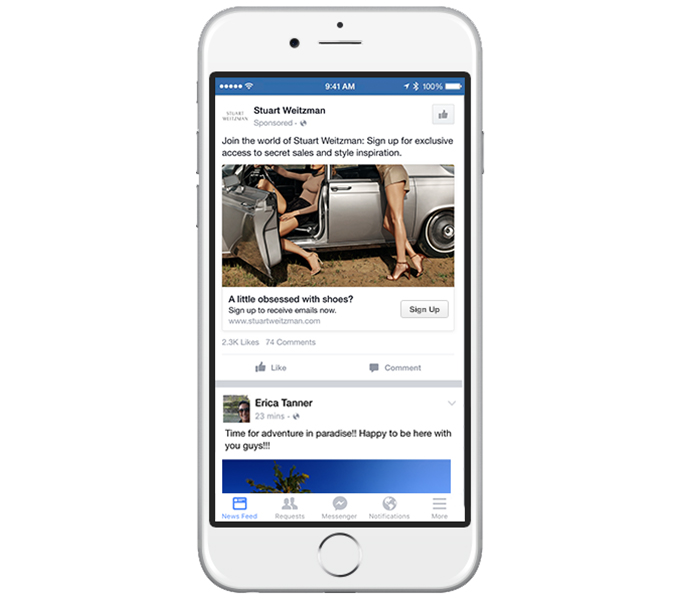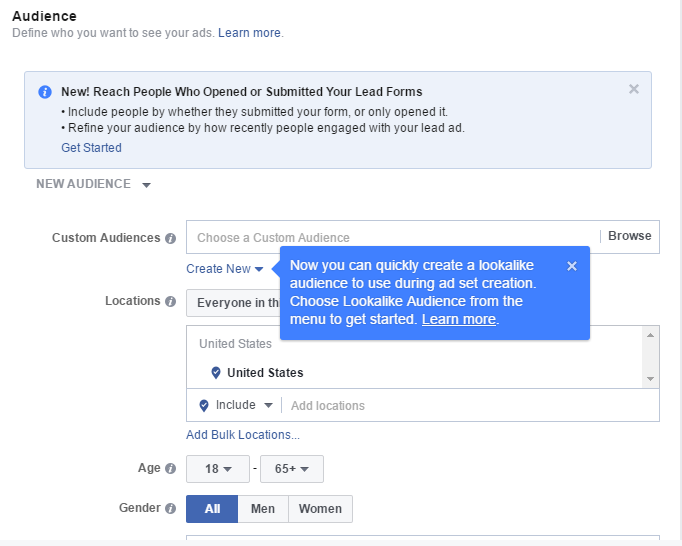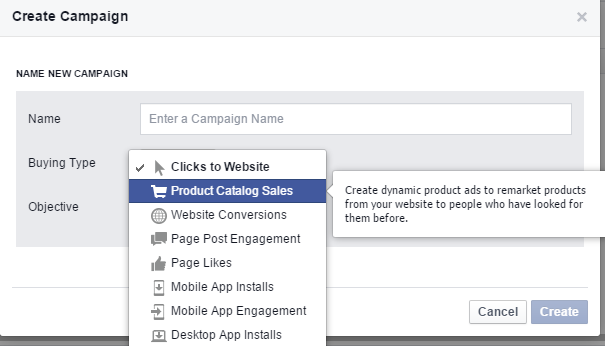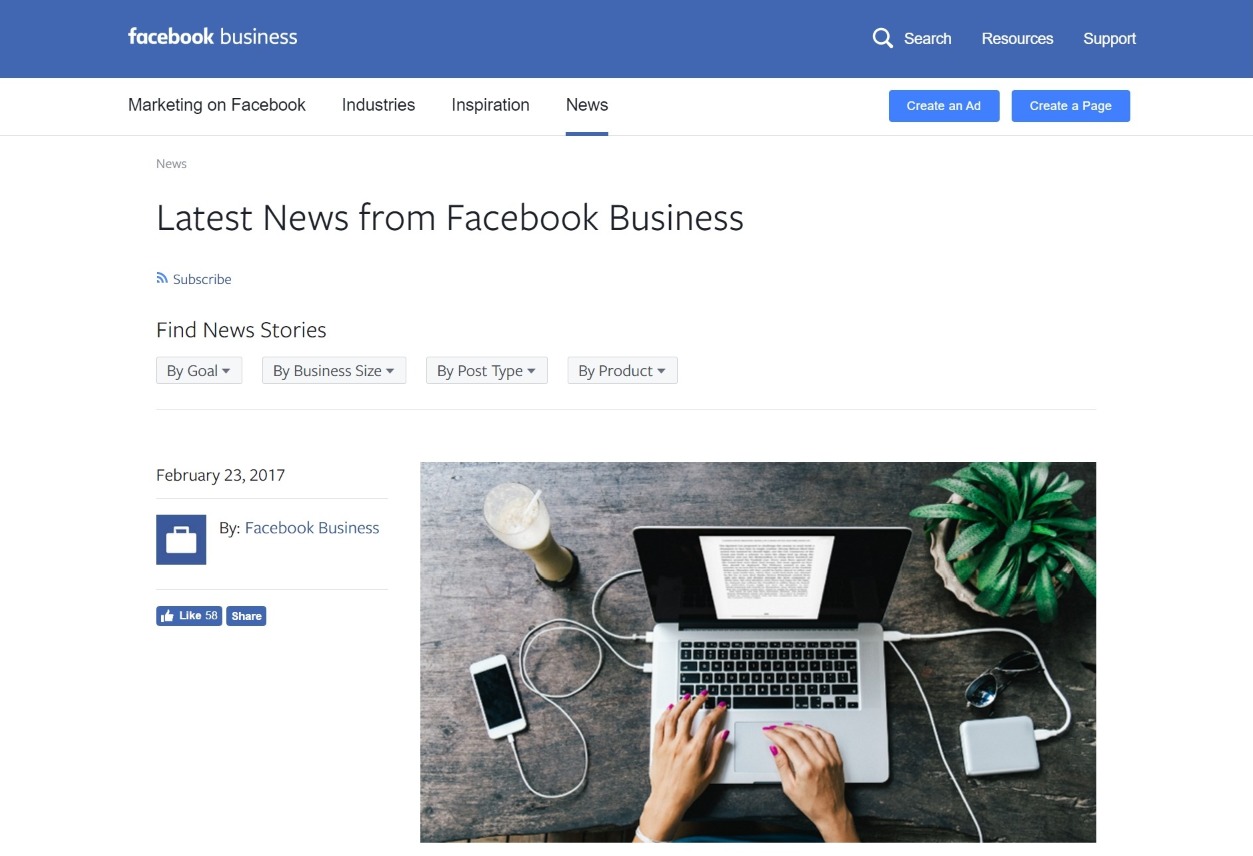6 Facebook Ad Mistakes That are Holding You Back


There are four million advertisers on Facebook.
If that doesn’t sound like a lot, consider the fact that there were only three million a year ago.
You can expect that number to keep going up as more business owners discover they can actually make conversions, communicate with their customers, and get more leads all in one place.
Unfortunately, that means advertising on Facebook is only going to get more competitive. And that doesn’t leave much room for failure.
At CPC, we’ve seen a lot of Facebook ad mistakes that cost retailers a lot of money, but there are a few that rise to the top:
We’ve outlined every mistake below, and how you can fix them before your budget (and time) goes down the drain.
Whether it’s ad creative or audience targeting, Facebook ads shouldn’t just be set and forgotten.
“Facebook ads are not one-size-fits-all,” says Ryan Bates, Digital Production Coordinator on the Facebook team at CPC Strategy. “I’ve found that a lot of brands don’t invest time in properly testing their ads.”
Novice Facebook advertisers will often avoid split testing ads for one of two reasons–either because the targeting options on Facebook are overwhelming, or because they aren’t really sure who their audience is in the first place.

What results is a broad message targeting a wide age range, and all genders across all devices.
“Advertisers who make this mistake will probably see mediocre results, and won’t have any actionable targeting or creative information to use in their strategy moving forward,” says Bates.
Start by testing one thing at a time:
Whether you’re testing one variation or three, you should have a plan for what you’re testing and the results you expect to see for each one.
That way, you can really isolate what made the difference for an ad and carry that over for future campaigns.
Try testing different ad formats and CTAs to start.
This sounds obvious, but a strategy for your ads is key.
Before you run any campaigns, you need to have a plan for what you want to achieve, whether that’s getting actual conversions or building up your audience.

If you start without a plan, you may see results, but you won’t know how to define success–or if your campaigns are really benefiting your business.
The first step is having a goal and developing a plan and strategy to achieve those goals. Start with your business goals and think about how those can be achieved on Facebook.
Pro-tip: Many retailers see the biggest ROI when starting with powerful Dynamic Ads. You can actually integrate your Google Merchant Feed into Facebook for a quick start.
As we mentioned before with broad targeting, the root of the problem isn’t just the copy–it’s likely a lack of knowledge about your audience.
“Whether it’s a free shipping message or promo, don’t just describe a product in the headline,” says Bates. “You really need to capture your audience’s attention and stand out in their feed.”

Why does it matter?
Well because if people aren’t clicking on your ads, Facebook won’t recognize it as being relevant or engaging, and will charge you more for it–essentially penalizing you for being boring.
“Start by learning exactly who you want to target,” says Bates. “Once that’s nailed down, create posts that speak to them–not just everyone.”
Don’t use colors or imagery that blends into the feed.
And most importantly, test, test, test.
If you’ve been setting up ads and checking back in when they’re done to see where the chips have fallen, you’re already setting yourself up for failure.
“You’d be surprised by how often newbie advertisers will spend a significant portion of their budget on ads that have returned almost nothing,” says Casey Edwards, Social Marketing Manager at CPC Strategy.

The bottom line is Facebook will still charge you for your ad whether it’s working or not.
If you choose not to adjust your ads, you’re basically throwing money out the window.
“You should be readjusting your budget every other day, ” explains Bates. “Adjust your campaigns as needed–if your desktop campaign isn’t performing like your mobile campaign, start re-allocating money towards the one that’s working.”
If you want to get the most for your dollar, optimize the things that are working, and pull back on the things that aren’t. This includes:
“I typically see this mistake the most in placements,” says Edwards. “For example, they’ll continue to run Audience Network placements even though there’s an extremely low return. If there’s a placement or audience that’s not performing, it’s best to eliminate that and focus the budget elsewhere.”
It’s easy to spend a lot of money on Facebook with the many targeting opportunities the platform provides, but a lot of new advertisers will get carried away with chasing audiences and aiming for brand awareness.
Don’t forget Facebook is a full-funnel channel–you don’t have to settle for brand awareness when you can get conversions first.

That’s why it’s crucial for retailers to make sure budgets are being allocated from the bottom of the funnel up, reminds Edwards.
And for most online retailers, the lowest hanging fruit is always retargeting “warm leads”–customers and potential customers who have visited your site or are already familiar with your brand.
“Nail down your retargeting efforts first as this will always be your main source of revenue,” says Edwards. “Once you have a sound retargeting strategy, you can start to test the waters with prospecting.”
Again, we highly recommend running Dynamic Ads to start.
If you’re not currently running Dynamic Ads, install the Pixel on your site, and get that rolling, because Dynamic Ads are a great barometer to gauge future success on the platform.

“If your Dynamic Ads aren’t performing well, it’s a strong indicator that prospecting won’t be very successful,” says Edwards. “Capture that traffic that is already familiar with your brand, and then move on to new customer acquisition“.
Even if you’re in the Business Manager every day, it’s nearly impossible to keep up with every Facebook update, and the implications that change will have on your ad success.
First, follow Facebook News.

And while you’re at it, sign up in the box to the right to receive blog updates from CPC Strategy.
We’ll keep you up to date on everything we know, and how we think a change will affect you.
